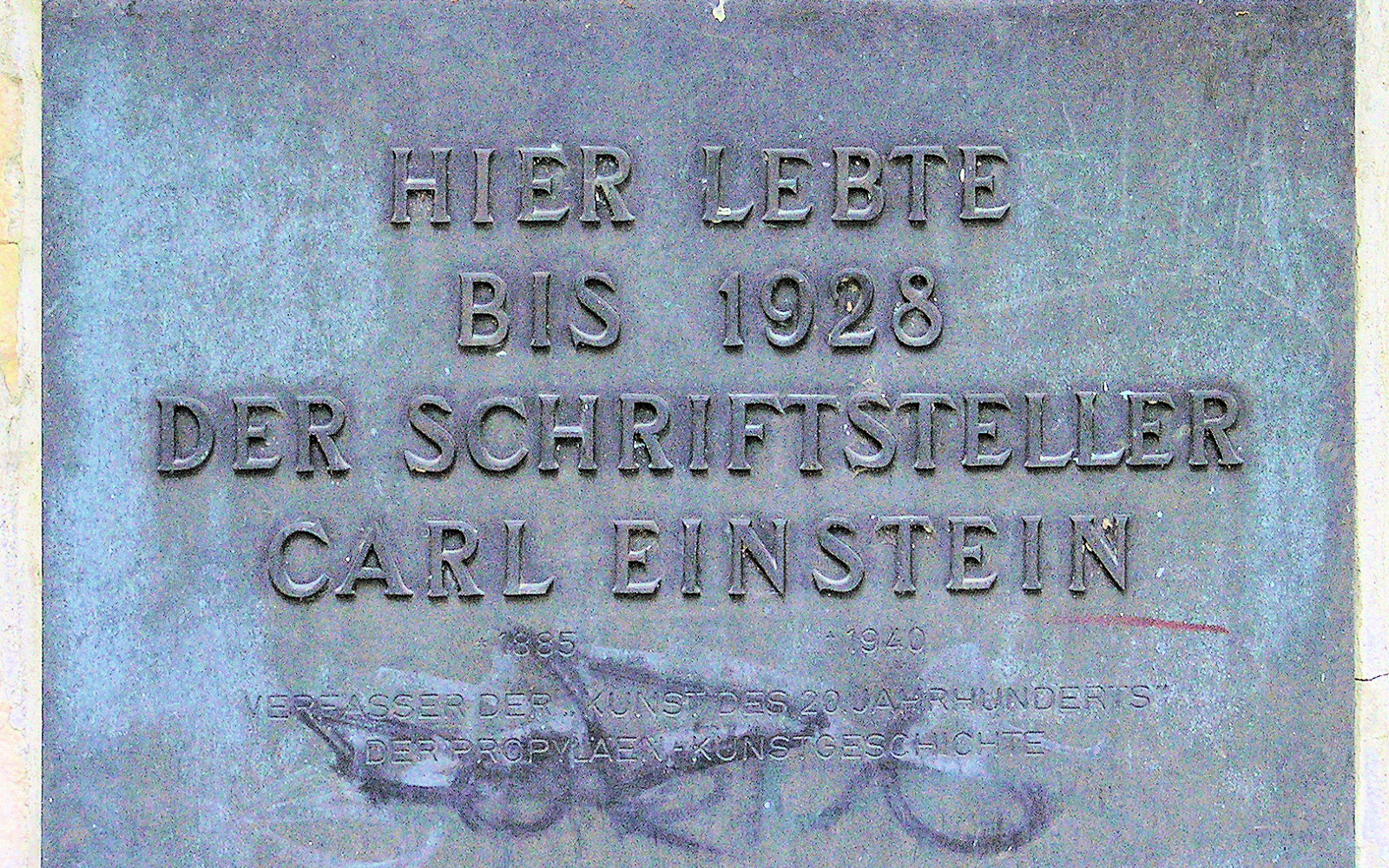- Event
- Lecture
Carl Einstein Re-Visited
The Topicality of his Language, Prose, and Art Criticism
Thu, February 02 – Sat, February 04, 2017
- Location
- Lecture Hall
The ZKM | Karlsruhe, the Museum für Literatur am Oberrhein and the Carl Einstein Society will host a conference on Carl Einstein in February 2017, to be held for the first time in the town of his youth. The conference asks about the potential of Einstein’s writing, his contemporary influences and the aftermath of his work in literature and art history.
The writer, art critic, exhibition organizer, and political activist Carl Einstein (1885-1940) spent his early years, from 1888 to 1904, in Karlsruhe. Between 1905 and 1928 he lived in Berlin and later in Paris, before joining the Spanish Civil War in Catalonia in 1936.
The reception of Carl Einstein’s work is considered something of an insiders’ feat. Although he was a contemporary critic and promoter of modernist art and a close friend of Franz Pfemfert (Die Aktion), the gallerist Daniel-Henry Kahnweiler, and the artist Georges Braque among others, his publications and manuscripts have been rediscovered only relatively recently. In his hometown Karlsruhe, a commemorative culture concerning Carl Einstein is still missing. The writer represents in exemplary fashion the expulsion of the intellectual Jewish elite in Germany in the first half of the 20th century. Einstein is regarded as a »prophet of the avant-garde«, as revolutionary in literature and politics, but has also been called »half-forgotten«. His precarious life, and his suicide during his flight from the Nazi regime, remain complicating factors in the search for traces of his literary remains.
Thanks to the extensive research work undertaken over the past thirty years, Carl Einstein’s name and works have been canonized in art historiography. His work continues to offer new insights, however. His poetry, art criticism and prose bear witness to the classical modern period. In the inter-war years he became an influential mediator for the cultural transfer between Paris and Berlin and as an author he shaped a specific language for modern art.
In 1912 Einstein published »Bebuquin oder die Dilettanten des Wunders«. This text was conceptualized as an »anti-novel«; as such it anticipated Dada and Surrealism. His essay »Negerplastik«, which opened a new perspective on so-called Primitive Art, appeared in 1915, succeeded in 1926 by a very successful survey of modern art, entitled »Die Kunst des XX. Jahrhunderts«. At that time it was customary that mainly non-academics wrote about contemporary art. As an art critic wielding a sharp pen, Carl Einstein accompanied relevant movements of contemporary art, such as Expressionism, Cubism, Constructivism, and Surrealism, and was an influential figure within the German art scene of the 1920s. Einstein’s work comprises literary essays and texts of art criticism, studies of art history and art historiography, letters and interview recordings that reveal both the tension of his epoch and his individual expression.
On Thursday, 2 February 2017, the event takes place at 7 pm at the Museum für Literatur am Oberrhein. On Friday and Saturday, 3 and 4 February 2017, it takes place from 9 am to 7 pm at the ZKM | Karlsruhe.
Concept
Maria Männig and Sebastian Baden
